While the country sees its first and sudden pandemic-prevention lockdown and restrictions as like a curfew after independence, this lockdown comes with unequal powers in the hands of the executive, to restrict, remand and punish at their decisiveness. This also comes with the relentless and uncontrollable number of people, who are bound to break the current directions and guidelines. Many of these people have thus, either faced the music of the police souvenir “lathi” and humiliation of human dignity and the others of these members, have pushed it to another level of opposing and threatening the police and defying them in all manners. While neither stand justified either under the law or in moral terms, we are in dire need of the rectification of both situations.
On 24.03.2020 the hon’ble Prime Minister of India Sh. Narendra Modi announced a 21- day complete lockdown to fight the pandemic outbreak of COVID-19 and then further extended it to the period of 19-days. As of 21.04.2020 nearly about 19,984 confirmed cases of COVID, 640 deaths have been reported nationwide. The aforesaid orders were passed under the gamut of section 144 of Criminal Procedure Code as well as section 6(2)(i) of the Disaster Management Act and yet the widespread and exponential increase in the number of cases has been only due to the erratic and ill-mannered movement and exposure of the disease to one another.Without an iota of doubt the doctors and police are doing a commendable job in this grave pandemic issue but what has worsened the situation is that the police have chosen to instantly restrict such activities by a few resorting to the wielding of the lathis with impunity and callousness at people. Many videos and pictures have surfaced on social networking sites where the police are seen deciding the kind of undignifying and inhuman punishments. It has been opinionated that people were using the specific time duration to acquire necessary daily requirements and some police officers unreasonably restricted them by resorting to unreasonable force. On the contrary it has been viewed that there were many people who were breaking the lockdown for the source of self-entertainment but under no means overstepping the law is justified. Law engulfs all from cradle to coffin and thus it becomes necessary to work within the ambit of the law. If people are violating the law that certainly does not give an unlimited license to the police to follow their footsteps and overstep the law which defeats the sole purpose of the lockdown which was meant to ensure the safety against the threat of the virus.
If we understand the directions issued for our protection, primarily it comes from a delegated body and also a combination of various laws from the Indian penal Code, Disaster Management Act, Epidemic Management Act, and the Criminal Procedure Code. This would term any person who steps out of his/her respective house a “criminal” for either disobeying the directives, where sections of these statutes have ideally been used under extremely opposite and different situations. The notion of a pandemic prevention lockdown carries a completely different notion unlike a curfew which should ideally allow the people to perform or obtain their basic needs, however utilising these laws as implemented as cover, many police officials are taking up extreme measures. The simple solution to this lies in two-fold primarily scrutiny of the use of Police force and having a proper guideline set up for the use of force to manage and control the public and secondly a simple legislation in descriptive manner of a delegated authority which monitors and categorizes threat, the basic responsibility of the people of the nation, the basic preventive measures that must be provided, the relief measures and setting up medically advanced facilities across the nation and so on. The current Statutes have only been concerned with just a formation of a delegatory body and its details, while the legislation must offer pre-emptive alternatives and precautionary measures more elaborately in the statute.
There is no denying that Indian Crowds too function under extremity and lack control of temperament, but with the lacking of any policy to provide shelter, food and basic necessities the migrants and wage workers are not left with a choice but to revolt. Not to forget there are indeed many who defy the directions for their own self-entertainment. The Migrants complain of the lack of arrangement for their safe return to their homes where they can look after their needs or the proper facilities by the government. Under the Disaster Management Act that the government has utilised to operate the nation-wide lockdown, in the very same Statute the Section 12 speaks of the Guidelines for minimum standards of relief.—The National Authority shall recommend guidelines for the minimum standards of relief to be provided to persons affected by disaster, which shall include,— (i) the minimum requirements to be provided in the relief camps in relation to shelter, food, drinking water, medical cover and sanitation; (ii) the special provisions to be made for widows and orphans; 9 (iii) ex gratia assistance on account of loss of life as also assistance on account of damage to houses and for restoration of means of livelihood; (iv) such other relief as may be necessary. The irony is that the government while resorting to the Act, also forgets to consider and frame directions on some of the salient and vital Sections of the Act.
If noticed the patterns of the nation-wide address of the Hon’ble Prime Minister in neither of those addresses the Prime Minister falls silent about any benefits/ relief of the wage workers/ Migrant and ones under complete distress.The fact that India’s major informal workforce is comprised of stranded migrant workers remains lucid and indubious, moreover it shall also not be ignored that India has been ranked 102nd out of 117 economies of the world. The paramount conundrum and predicament of the daily wage workers is that on one hand they are not allowed to cross the “Lakshman Rekha” at the behest of the government, are forced to remain hungry as no cromulent purveyance has been contrived by the government and on the other hand when these people are deprived of the basic necessities they are forced to step out and then they are welcomed by the whimsical music of the lathis and humiliation by the police and in some cases even by civilians. Given the contemporary circumstances hunger might knock them before COVID does! The rectification of the same could have occurred or can be done if the government had emphasised on establishing liveable and viable government centres for these people to stay and facilitate their food and finding them the apt jobs either in the public or private structures. Such a Comprehensive Social Security would curb further problems to a very large extent and also minimise the problems for these people.
We must also differentiate these people from the people who blatantly and periodically tend to break the law for the purpose of self-entertainment, ego, and complacency. Especially the people with ulterior motives, who use unacceptable force against the police forces or the medical care workers. The increasing number of such actions is a call by these people upon themselves for stricter and ruthless vigilance. Neither their reason for violating the current lockdown directives reasonable and justifiable nor are their extreme actions and rage. They must fear that an assault on an on-duty public servant, calls upon an extended rigorous imprisonment for an extended period of more than three year and also fine under Section 332 and 353 of the Indian Penal Code. Moreover, they would be treated as outlaws by their own peers and society. These Monstrous acts have already caused tremendous grief. Refusing to be treated may be the right of these people, but so do the others Public servants have the very same value of life and dignity. It must also be duly noted that these men and women who violate the terms of the lockdown also fall under the purview of Section 51 of the Indian Penal Code and may cause significant threat to peace, harmony of the Nation.
However, this also brings us to question the extensive use of the provisions under Section 129 of the Code of Criminal Procedure (CrPC) by the many Police forces during the primary days of the lockdown. It is agreed upon that at these distressful times the public cooperation and anxiousness may not be easily controllable, however, to resolve this the police quickly and fiercely adopted the Lathi Charge and began to instil fear amongst the public. The lathi Charge has always been the quickest resort of the police, while at this instance the police had all the right to arrest or fine the people under Section 51 of Disaster Management Act-Punishment for obstruction, etc., Section 188 of Indian Penal Code which deals with knowingly disobeying a lawful order declared by a public servant, Section 2 of Epidemic Disease Act, Section 269 IPC that talks about Negligent acts that are likely to spread infection or disease dangerous to life and Section 270 IPC-. Malignant acts that are likely to spread infection or disease dangerous to life.
While no arrests or fines very stringently were pursued, the police resorted to instant force and punishment which involved public humility. While remitting this out the police do not seem to concern itself with the policy of Social distancing. The people do not maintain any distance while rolling on the ground, being caned by a number of police officers or other punishments remitted. It must be also noted such punishment is a definite infringement of Article 21 to the Right to a life with dignity. Not to forget that any of the acts being torturous, inhuman, and degrading treatments become a violation of the United Nations Human Declaration of Rights. The number of videos which have surfaced on social networking platforms only puts the executives at the position of the Judiciary as it is deciding the punishment. It is the clause (3) of Section 130 CrPC which requires the police officers to use as little force, and do as little injury to person and property as may be consistent with dispersing the assembly”. Moreover, the amount or kind of force by police are usually enlisted in the police manuals of the states. All necessary attempts must be made by the police to disperse the crowd and the crowd shall be adjured to disperse. Only when the order to defied only then force shall be used and that too minimum. It shall also be noted that in independent India lathi charge is usually reserved for dispersing violent mobs and preventing riots, not for establishing any kind of fear in the minds of people.The Rule of Law is Supreme and shall not get metamorphosed into the rule of police!
Time again such use of force by the police has been dealt by the Judiciary in the Ramlila Maidan Case, the Anita Thakur Case, D.K. Bhasu case and other cases which laid basic structure as to how the Police must treat the people and discussed the necessity to use force. While Anita Thakur and others v The State of J&K the Supreme Court had remarked that the use of excessive force by the police results in violation of human rights and dignity. Many times, the situations turn ugly or go out of control because of lack of sufficient training to the police personnel to deal with violence and challenges to their authority. There are various documents in the form of police manual and even international covenants proscribing use of unnecessary force and mandating that force should only be used when it is absolutely necessary. Even when used, it should be minimum and proportional to the situation. There are various documents in the form of police manual and even international covenants proscribing use of unnecessary force.
Even Dignitaries such as Justice A.K. Jayasankaran Nambiar and Justice Shaji P. Chaly of Kerala High Court have observed that “Amidst the din of the pandemic that engulfs us all,our laws cannot remain silent. They must continue to operate so as to protect the rights of the citizens.” Kerala High Court Judge, Justice Devan observed that police shall not use force against the violators of lockdown unless essential and even then, not more than necessary. Thus, brings us to question as to why did the police ever proceed to use force against many non-violent people and continued to remit instant punishments. The simplest answer to it would be that all the judicial statements and judgments do not come up as acceptable for the police forces, unless it comes in the form of a proper laid out law reformed by the legislative. The legislative must also act upon reforming the laws laid decades or probably centuries ago to deal with such instances more effectively and would keep the people aware of what kind of an action plan would be implemented, rather taking them by surprise by using laws ideally meant for different purposes for such instances


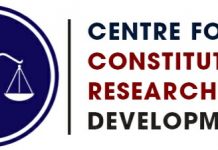
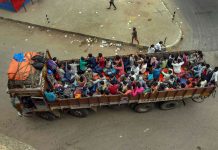



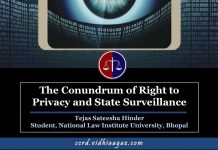
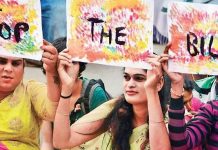

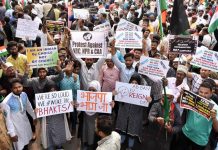
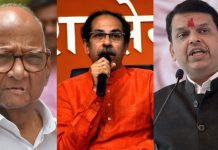


Very well written. Thank you for the new perspective.
This is really good content and it was much needed at this point to spread awareness among people. The article depicts a well-organised analysis of both sides of the story. Great job, guys!
This is really good content and it was much needed at this point to spread awareness among people. The article depicts a well-organised analysis of both sides of the story. Great job, guys!
Undoubtedly, a great piece of content.
Very well written. Really you have done a great job.